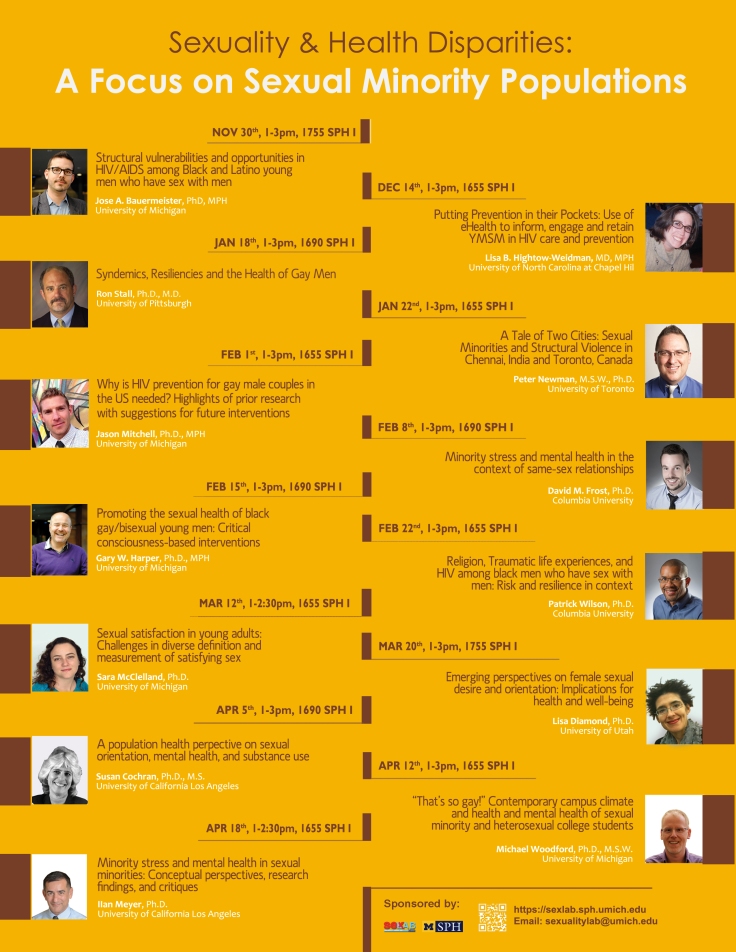April marked the conclusion of our first speaker series, which began on November 30th, 2012. Titled “Sexuality & Health Disparities: A Focus on Sexual Minority Populations,” the series consisted of lectures from 13 professors from Michigan and beyond. We were honored by overwhelming response to our request for a visit and talk from some of the most-respected researchers in the field of sexuality and health disparities.
Visiting speakers included Dr. Ron Stall from the University of Pittsburgh Graduate School of Public Health, Dr. Lisa Hightow-Weidman from the University of North Carolina school of Medicine, Dr. Peter Newman of the University of Toronto Factor-Inwentash School of Social Work, Drs. David Frost and Patrick Wilson from Columbia University Mailman School of Public Health, Dr. Lisa Diamond from the University of Utah Department of Psychology, Dr. Susan Cochran from UCLA Fielding School of Public Health, and Dr. Ilan Meyer from the Williams Institute at UCLA School of Law.
Speakers from across the University of Michigan campus also contributed, including Dr. Jason Mitchell of the School of Nursing, Dr. Gary Harper of the School of Public Health and SexLab Research Faculty, Dr. Sara McClelland of the College of Literature, Science and the Arts departments of Psychology and Women’s Studies, Dr. Michael Woodford of the School of Social Work, and our own Dr. Jose Bauermeister of the School of Public Health and Director of the Center for Sexuality & Health Disparities (SexLab)
This breadth of speakers invited us throughout the semester to view the intersection of sexuality and health from varying perspectives: population health, structuralism, coping and resiliency, critical consciousness, psychology, and social work. Lectures were also diverse in intended outcome of research presented, from creating reliable measures, developing theory, and conducting research based on theory to developing interventions, implementing interventions, and making policy recommendations. Throughout the series, we delved deep into the ways minority stress theory has impacted the field, while simultaneously examining critiques of the theory. We explored the concept of Syndemics, structural risk factors impacting ethnic minority sexual minority youth, changing perspectives on the concept of sexual fluidity, the use of technology and critical consciousness in HIV prevention interventions, and health within the context of same-sex relationships. In their talks, professors touched on the history, present, and future of the field, and detailed the influence of sexual minority research on societal and political attitudes, and vice versa.
I’d like to take this opportunity to thank all of our speakers for making the SexLab’s first speaker series such a success and sparking dialogue on the intersection of sexuality and health throughout the School of Public Health and U-M at large. I’d also like to thank those who attended the lectures and demonstrated the strong interest in sexual minority health on campus. Finally, I’d like to thank those who helped SexLab fund the speaker series, including the Department of Health Behavior & Health Education, Rackham Graduate School, Health Equity Speaker Series, and Global Public Health Initiative.

